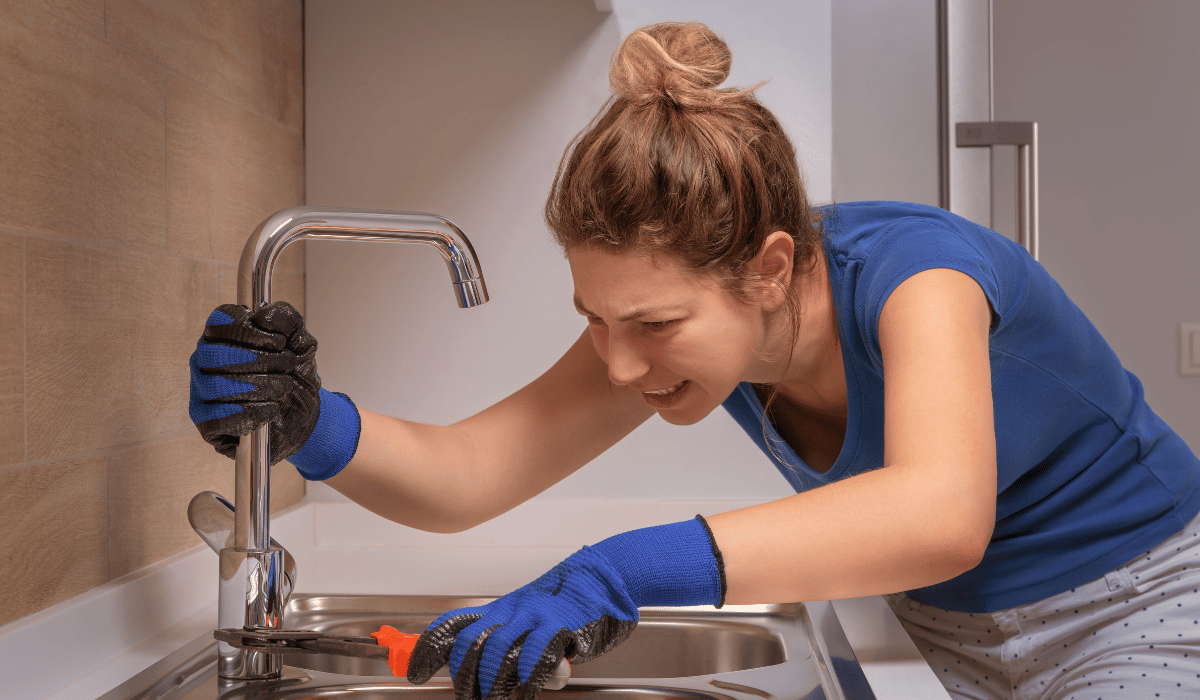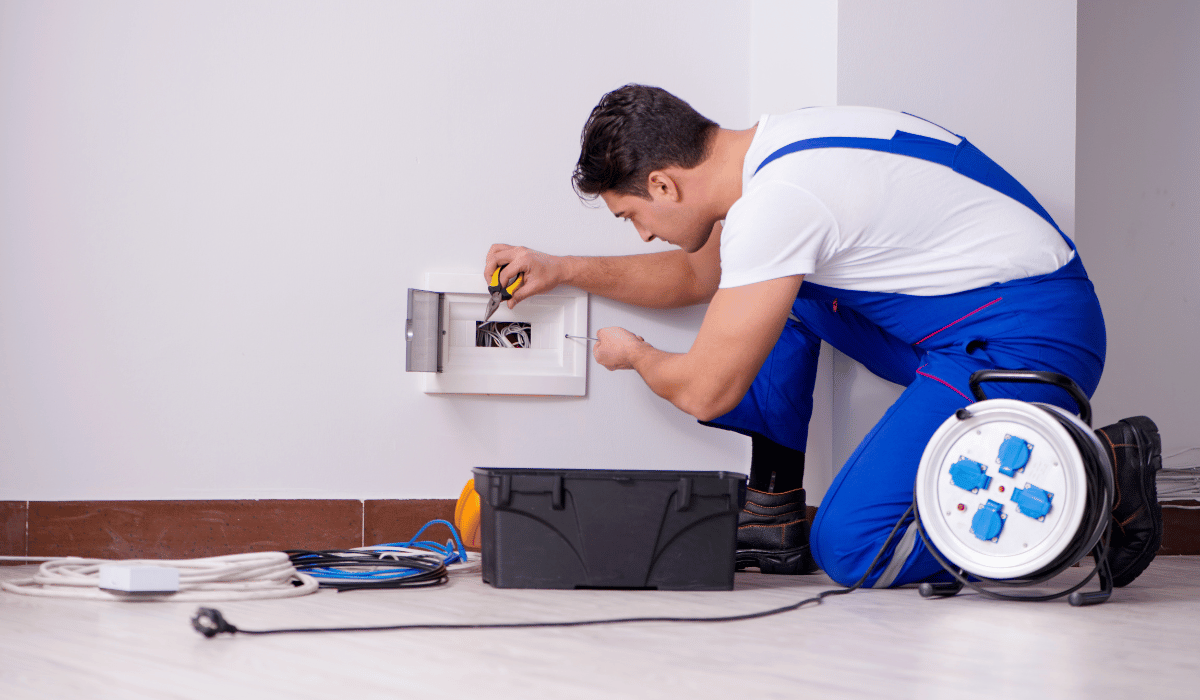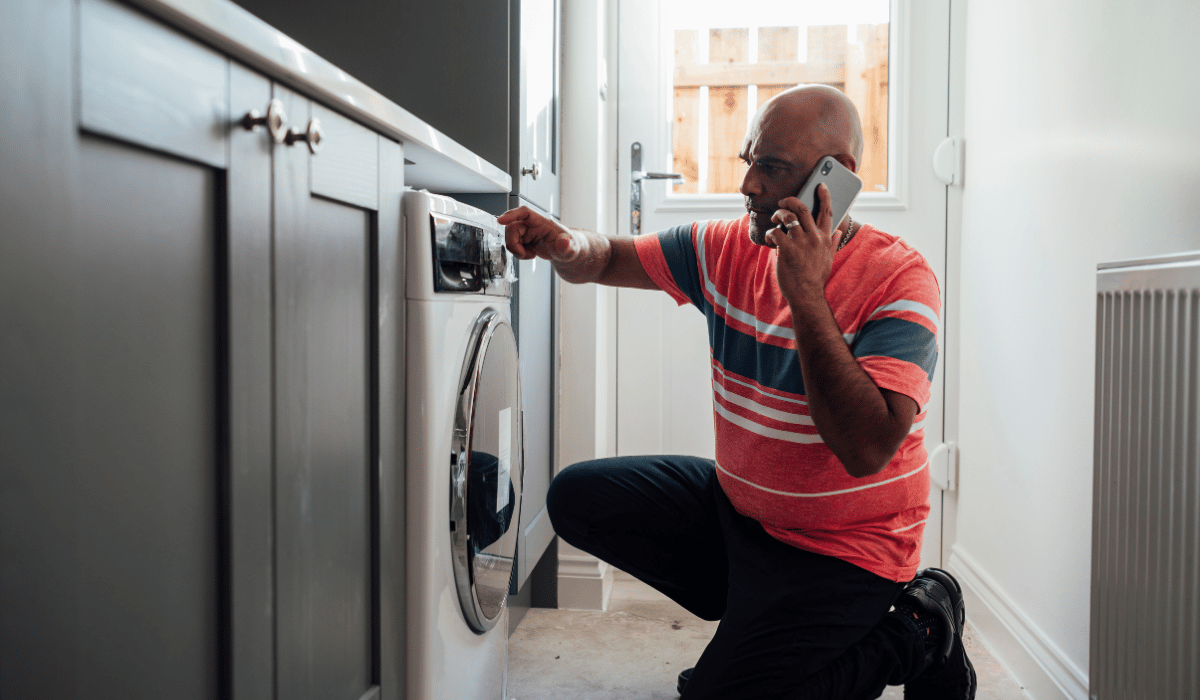DIY or Delegate? When to Tackle Repairs Yourself and When to Call a Pro
Reading Time: 5 minutesAs a property owner or manager, you understand the importance of keeping your property in tip-top shape. Regular maintenance not only ensures a comfortable and safe living environment for tenants but also protects your investment and avoids costly repairs down the road. But when it comes to repairs, the question often arises: should you tackle…

As a property owner or manager, you understand the importance of keeping your property in tip-top shape. Regular maintenance not only ensures a comfortable and safe living environment for tenants but also protects your investment and avoids costly repairs down the road.
But when it comes to repairs, the question often arises: should you tackle them yourself (DIY) or delegate the task to a professional? This guide will equip you with the knowledge to make informed decisions and navigate the world of DIY versus professional repairs.
Table of Contents
When to Consider DIY Repairs

Taking on repairs yourself can be a rewarding experience. Here’s how to determine if a DIY approach is right for you:
Skill Level and Comfort Zone
Some repairs are practically tailor-made for DIY projects. These include tasks like replacing a leaky faucet, swapping out a malfunctioning light switch, patching a minor hole in drywall, or bleeding radiators. The key is to be honest about your skill level. If you’re comfortable with basic tools and have a knack for figuring things out, these types of repairs are a great place to start. However, don’t be tempted to take on a project that feels outside your comfort zone. There’s no shame in admitting you need help – it can save you time, money, and frustration in the long run.
Cost Savings Potential
Let’s be real, hiring a professional can put a dent in your wallet. DIY repairs can offer significant cost savings, especially for straightforward fixes. Consider the potential cost of a service call and the materials needed for the repair. If the numbers add up and the project seems manageable, DIY might be a budget-friendly option.
Resources Available
The good news is you don’t have to go into a DIY project blindfolded. There’s a wealth of resources available to equip you with the knowledge and skills you need. Online tutorials can walk you through every step of the process, hardware store guides offer project-specific advice, and even good old-fashioned library books can be a treasure trove of information. Utilize these resources to boost your confidence and become a DIY pro!
Time
While time is a valuable consideration, don’t feel pressured to tackle a complex project if it means significant delays in your schedule. However, for quick and relatively straightforward repairs, DIY might be the answer, especially if finding a professional means waiting for an appointment slot. Just remember, if a project seems time-consuming or beyond your initial assessment, calling in a pro can prevent delays and get things back on track quickly.
When to Call a Pro

There are times when calling a professional is not just recommended, but essential for the safety and well-being of your property and yourself. Here’s when you should consider bringing in the experts:
Safety First
Electrical Work
Electricity is no joke. Even seemingly minor electrical repairs can have catastrophic consequences if not done correctly. Faulty wiring can lead to electrical fires, shocks, and even property damage. When it comes to electrical work, calling a licensed electrician is absolutely crucial. Their expertise ensures the job is done safely and up to code.
Gas Leaks
A gas leak is a serious health and safety hazard. If you suspect a gas leak in your property – you might smell rotten eggs, hear hissing noises, or experience dizziness – evacuate immediately and call a qualified gas fitter. Do not attempt to fix a gas leak yourself.
Anything Beyond Your Expertise
If a repair involves hazardous materials (like asbestos), requires working at heights, or deals with complex plumbing or gas systems, err on the side of caution and call a professional. Safety should never be a gamble.
Complex Repairs
Major Appliance Repair
Modern appliances are intricate machines. While some basic troubleshooting might be within your DIY skillset, for major repairs, it’s best to call a certified appliance repair technician. They have the specialized knowledge and tools to diagnose and fix complex issues, often saving you money in the long run by preventing further damage.
Roof Replacement
A roof is a vital component of your property, protecting it from the elements. Roof replacement is a complex job requiring expertise in selecting the right materials, proper installation techniques, and ensuring proper ventilation. Leave this task to a licensed roofer to avoid potential leaks, structural damage, and safety hazards.
Extensive Carpentry Work
While basic furniture assembly might be a DIY feat, extensive carpentry work, like building decks, framing walls, or installing cabinets, requires specialized skills and knowledge of building codes. A qualified carpenter can ensure the job is done structurally sound and meets safety standards.
Time Constraints
Emergency Repairs
Some repairs require immediate attention to prevent further damage or safety risks. For example, a burst pipe, a major leak in the roof, or a malfunctioning heating system in the winter shouldn’t be left waiting. In these emergencies, calling a professional quickly can minimize downtime and prevent costly consequences.
Projects Beyond Your Schedule
Be realistic about your time constraints. While DIY can save money, it also requires time investment. Don’t take on a project with a tight deadline if you know you can’t dedicate the necessary hours. Calling a professional can get the job done efficiently and minimize disruption to your schedule.
Warranty Matters
Many appliances and products come with warranties that cover repairs for a specific period. However, some warranties become void if repairs are not performed by a licensed professional. Before attempting any DIY repairs on warrantied items, always consult the warranty information to ensure you don’t accidentally void your coverage.
Finding the Right Pro

So, you’ve decided to call in the cavalry. How do you find a qualified professional?
Word-of-Mouth Recommendations
The best recommendations often come from trusted sources. Talk to neighbors, friends, or even your property management company for referrals to reliable professionals they’ve used in the past.
Do Your Research
Don’t just rely on a single recommendation. Get quotes from multiple qualified professionals before making a decision. Research online reviews and check the Better Business Bureau (BBB) for any complaints against potential contractors.
Ask Questions, Verify Credentials
Don’t be afraid to ask questions! Inquire about their experience with similar repairs, their insurance coverage, and licensing requirements for the specific job.
Conclusion
The decision to DIY or delegate repairs ultimately depends on your specific situation. By considering your skill level, the complexity of the repair, time constraints, and safety factors, you can make an informed choice. Remember, the goal is to ensure the safety and value of your property. Don’t hesitate to call in a professional when the job requires expertise beyond your DIY skillset.
Green Ocean Property Management: Your Partner in Property Care
At Green Ocean Property Management, we understand the importance of maintaining a property. Whether you’re a homeowner or a busy property manager, we can help you navigate the decision of DIY versus professional repairs. Our team of experienced professionals can handle a wide range of maintenance tasks, from minor fixes to complex repairs.
Contact Green Ocean Property Management today for a free consultation! We’ll be happy to discuss your specific needs and recommend the best course of action for your property.
Save Money With Deleading
Reading Time: 2 minutes Deleading your property can be quite expensive. Fortunately, you don’t have to shoulder the entire cost on your own. We’re sharing with you a huge tip on how to save money with deleading – or tax credits, at least – as well as make your property safer. You can do both by deleading your…
Go Digital: Property Management Software for Efficiency
Reading Time: 3 minutesEver feel like you’re spending more time shuffling paper than managing properties? Lease agreements, tenant applications, maintenance requests, financial statements – the list goes on. For property managers and owners, the burden of paperwork can be overwhelming, leading to wasted time, lost documents, and difficulty tracking important information. But what if there was a better…
9 Powerful Ways Online Reviews Boost Property Management Success
Reading Time: 4 minutesIn today’s digital age, online reviews have become a crucial factor in the success of property management companies. Potential customers use online reviews to make purchase decisions. This makes it essential for property managers to understand the impact of these reviews on their business. In this article, we’ll explore 9 powerful ways online reviews boost…








